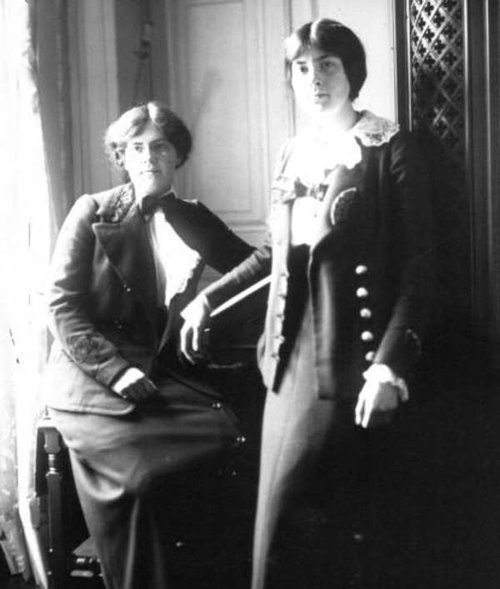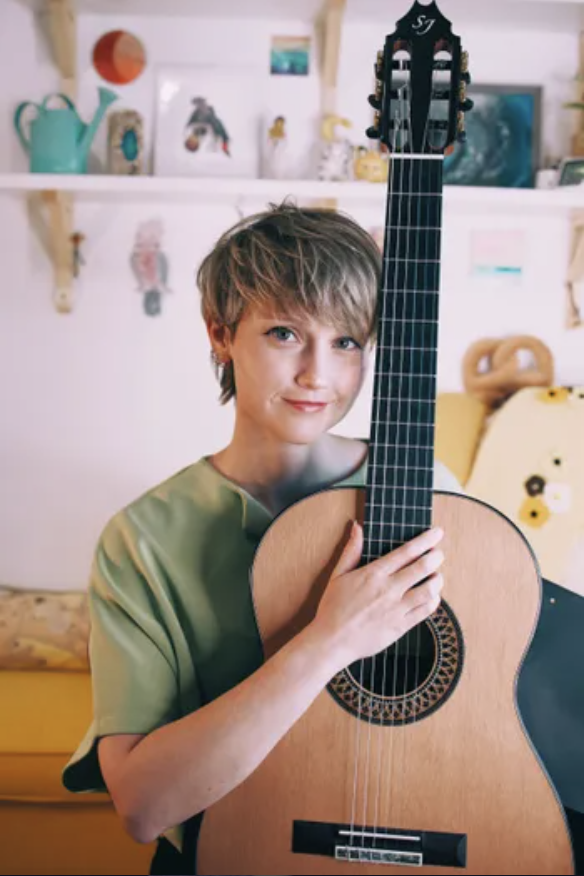By Daniel Hathaway
On Friday afternoon, Quire Cleveland released the following statement:
We regret to announce that Quire Cleveland has canceled its final concert series, Churches of the Same God: Mass Settings of Byrd and Tallis, scheduled for September 29, 30, and October 1, 2023, in the aftermath of the release of “Parish & School Policy on Issues of Sexuality and Gender Identity” by the Catholic Diocese of Cleveland. While Quire Cleveland does not agree with or support this policy, the decision to cancel the concert series was made solely to protect the safety and well-being of Quire’s singers, concert attendees, and hosting churches in the context of ongoing social media activity encouraging disruption of the concerts as a means of protesting the policy. All contracted singers will be compensated for the full concert series according to the terms of their singer agreement.
HAPPENING THIS WEEKEND:
On Friday at 12:15, University Circle carillonneur George Leggiero plays a 30-minute concert on the 47-bell McGaffin Carillon. Listen live outdoors or click here for a live stream.
Up for a road trip? On Saturday at 7:30, Carl Topilow leads the Sinta Sax Quartet and the Firelands Symphony in William Bolcom’s Concerto Grosso for Saxophone Quartet, Gershwin’s An American in Paris, and works by Copland, Williams, and Glass at Sawmill Creek Convention Center in Huron.
Saturday at 8 at Convivium 33 Gallery, Cleveland Uncommon Sound Project hosts Dragonchild x Sunken Cages//Lemon Quartet, with Steve Clements, piano, Corey Farrow, electric piano, Keith Freud, saxophone, and Gabe Schray, bass in a pay-what-you can concert.
The Cleveland Classical Guitar Society begins its Classical Series on Sunday at 3 at the Maltz PAC with a recital by Australian artist Stephanie Jones (pictured), including works by J.S. Bach, Richard Charlton, Ross Edwards, Jakob Schmidt, Quique Sinesi, Rostislav Golubov, Astor Piazzolla & Antônio Carlos Jobim. Read a preview here.
NEWS BRIEFS:
Cleveland Institute of Music students to protest conductor, call for his resignation
“Cleveland Institute of Music’s student government has planned a sit-in, saying students have lost trust in Carlos Kalmar, principal conductor and director of orchestral studies and the conducting program.
“The move comes in the wake of a Title IX investigation this year into accusations of inappropriate behavior by Kalmar. Last month, the school acknowledged the seriousness of the complaints but said ‘the specific allegations against Carlos Kalmar did not violate the Sexual Assault, Sexual Harassment, and Sex Non-Discrimination Policy Under Title IX.'” Read the article by Kabir Bhtia on Ideastream here, and a related article on the Violin Channel here.
TODAY’S ALMANAC:
September 15:
On September 15, 1890, Swiss composer Frank Martin was born in Geneva (he died in the Netherlands in 1974, where he spent much of his career). Martin developed a lean compositional style influenced by Schoenberg’s 12-tone theories, but never abandoned tonality altogether. George Szell programmed his Cello Concerto with Pierre Fournier and The Cleveland Orchestra in October, 1967, two years after it was written. Click here to listen to the live performance.
Austrian organist, conductor, composer, and influential teacher Anton Heiller was born on this date in 1923 in Vienna, where he died in 1979. He was a prolific composer whose works, influenced by Hindemith and Martin (see above), never approached the popularity of his solo performances, which included a series of recitals on the new Fisk organ at Harvard in 1970. Two performances of his organ works include Oberlin alumnus Dexter Kennedy playing his In Festo Corporis Christi in 1971 on the Beckerath organ in Dwight Chapel at Yale, and Simone Gheller playing his Fantasia super Salve Regina on an artist diploma recital on the Fisk organ in Oberlin’s Finney Chapel in 2011.
In 1945, American soprano Jessye Norman was born in Augusta, Georgia. A celebrated opera diva, she sang 85 performances at the Met, including 11 roles in 10 different works. Revisit her artistry in a live performance of Richard Strauss’ Morgen at the 1991 Salisbury Festival inaugural concert on the West Green of England’s Salisbury Cathedral, and — out-of-season but in another cathedral — her 1992 Christmas Concert with the Lyon Opera Orchestra at Notre-Dame in Paris.
Also on this date in 1945, Austrian composer Anton von Webern was accidentally shot to death by an American soldier when he stepped outside his house to light a cigar during the post-war occupation. Webern’s eventually sparse compositional style is contrasted to J.S. Bach’s polyphonic textures in his arrangement of the 6-voice Ricerar from A Musical Offering, performed here by The Cleveland Orchestra led by Christoph von Dohnányi.
September 16 By Stephanie Manning:

Born on this date in 1887 in her home country of France, Boulanger (pictured left with her sister Lili) is well-known for influencing an entire generation of composers, with her list of students including Aaron Copland, Philip Glass, and Astor Piazzolla. Her conducting career was equally impressive, as she was the first woman to conduct the Boston Symphony, Philadelphia Orchestra, and other major ensembles.
Though she was also a composer, Boulanger stepped back from writing music after the untimely death of her younger sister Lili. However, Nadia Boulanger would go on to program and share both her and her sister’s music in concert throughout her life. Enjoy this performance of her Fantaisie pour piano et orchestre on YouTube, and check out the Boulanger Initiative for more resources about women in music.
September 17:
Going way back, on this date in 1179, the German abbess Hildegard von Bingen died at the monastery she had founded in Rupertsberg, near Bingen. Known as the “Sibyl of the Rhine,” the medieval polymath wrote a large body of chant, including one of the first morality plays, Ordo Virtutum. Click here to watch a full performance by the Polish women’s choir Flores Rosarum.
On September 17, 1803, Franz Xaver Sussmayr, student of Mozart and Salieri who was entrusted by Mozart’s widow with the unenviable task of completing his teacher’s Requiem, died in Vienna. That’s how we remember Sussmayr today, but in his own era, he was a well-regarded composer who wrote church music and opera, as well as a concerto for Mozart’s favorite clarinetist, Anton Stadler, left unfinished but later completed by Michael Freyhan. Give Sussmayr’s piece a listen here in a performance by Dieter Klökker and the English Chamber Orchestra.
American composer, pedagogue, and pianist Charles Tomlinson Griffes was born on this date in 1884 in Elmira, New York, and died of influenza in New York City during the 1918 pandemic. He became a leading American exponent of impressionism as exemplified in his orchestral works White Peacock, (a 1915 piano work he orchestrated in 1919), The Pleasure Dome of Kubla Khan, (1912, revised in 1916), and Poem for Flute and Orchestra (1918). Like Gustav Holst, he wrote music in his spare time while teaching at a private school. Listen to a 2012 performance of Kubla Khan with the Texas Festival Orchestra at the Round Top music Festival, led by Micahel Stern.
On September 17, 1931, RCA Victor made history by introducing the first 33-⅓ rpm long playing record in a demonstration at the Savoy Hotel in New York, years later to be upstaged by Columbia Records, who released an improved version in 1948.
And on this date in 1998, American composer and organist William Albright died unexpectedly at the age of 53 in Ann Arbor, Michigan, where he had taught at the University of Michigan since 1970. Influenced by his studies with Oliver Messiaen in Paris, Albright contributed to the 20th century canon of organ music with solo works as well as with his introduction to The King of Instruments, played here by Painesville-born organist Tom Trenney and narrated by Oberlin alumnus Michael Barone at First Plymouth Church in Lincoln, Nebraska in 2013.
Albright was also an enthusiastic performer of ragtime, having recorded many pieces by Scott Joplin and others. Here’s one of his own concert rags for the organ, Sweet Sixteenths, played by Frank Hoffmann at the Heiliggeistkirche in Frankfurt, Germany, in 2018.




